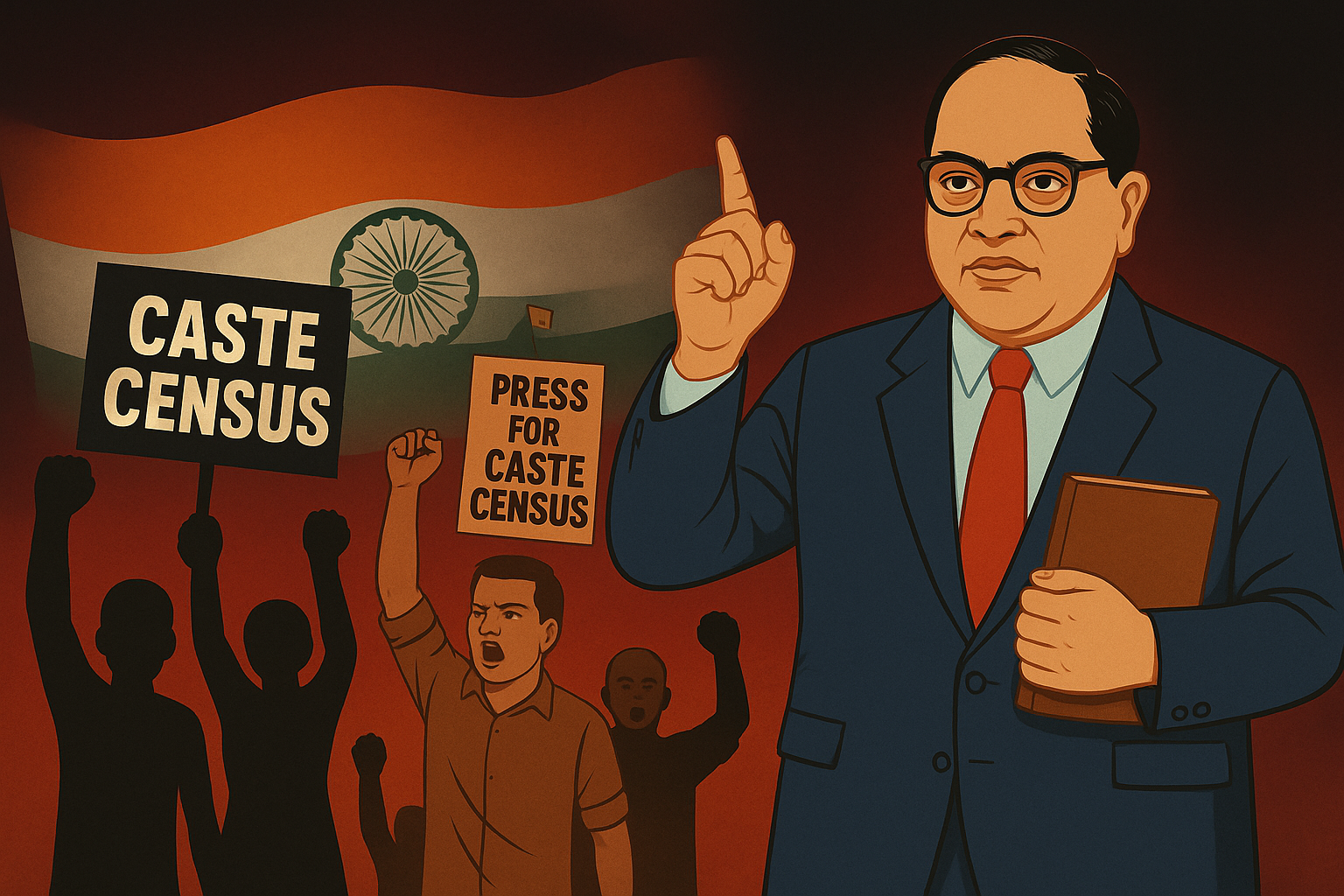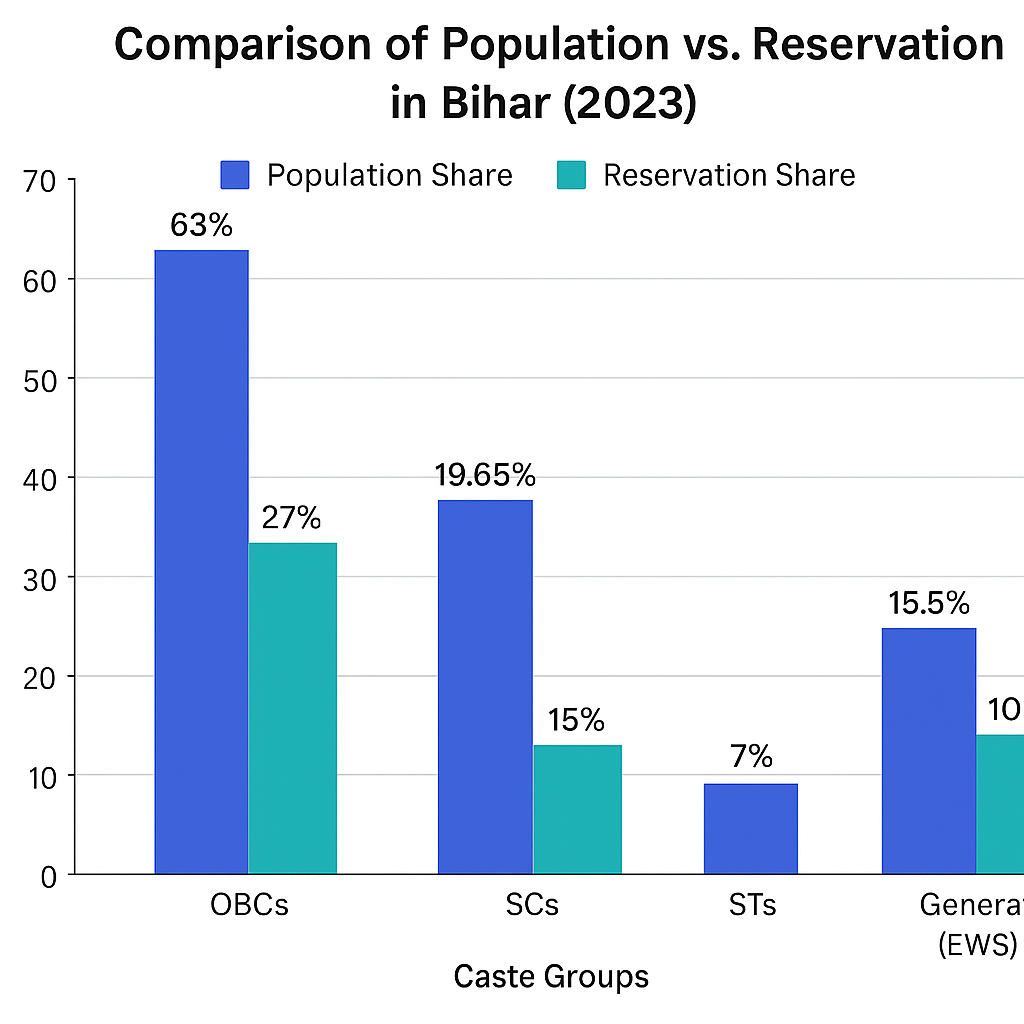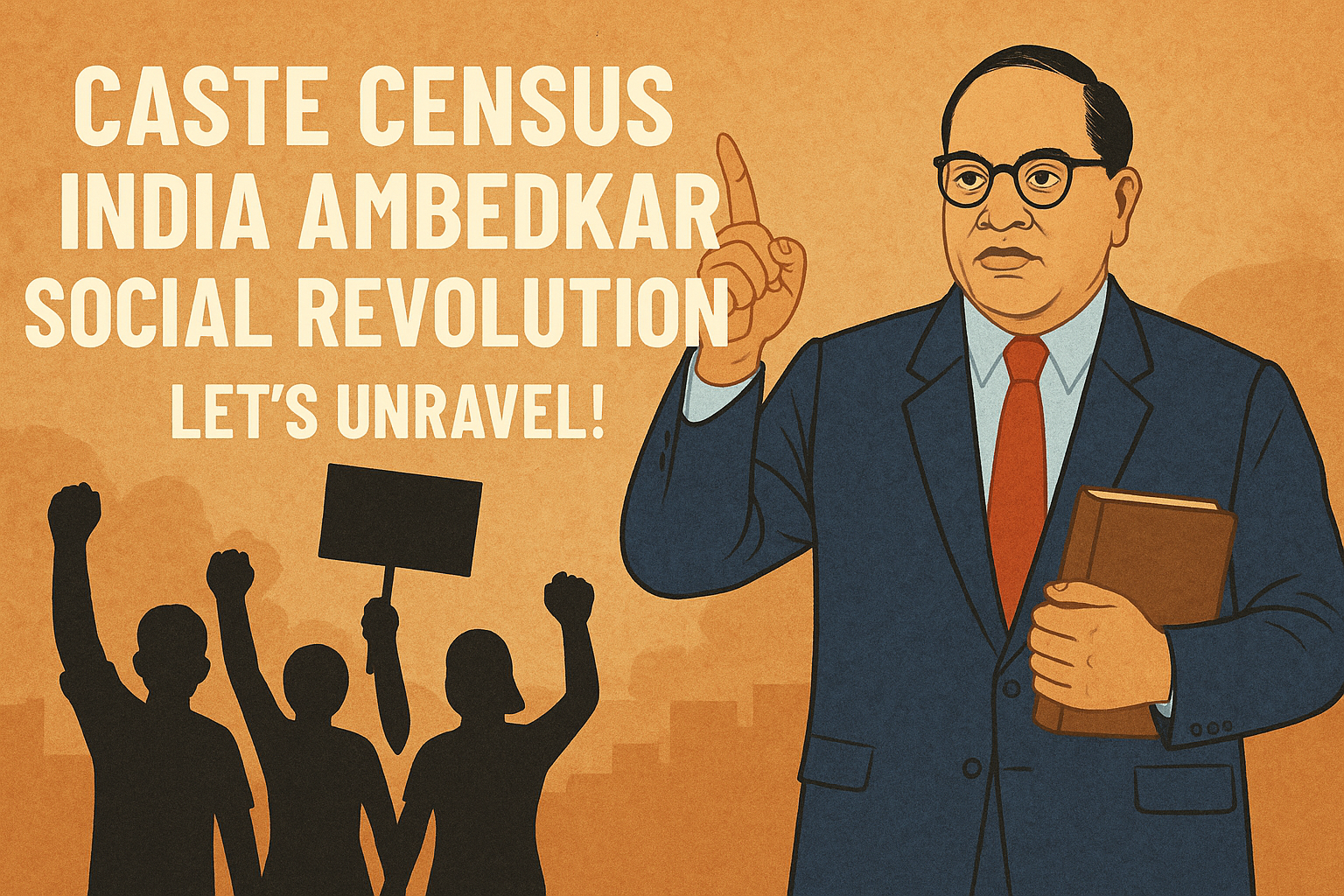Let me start with a confession: I’ve spent nights arguing with myself about this caste census. On one hand, I’m screaming, “Yes! Finally, data to fix systemic inequality!” On the other hand, I’m whispering, “Wait… what if this just locks us deeper into caste hell?”
Sound familiar? If you’re Indian, you’ve probably had this debate too. Let’s unpack it—no jargon, no political spin. Just raw questions here in this article – “caste census India ambedkar social revolution”
Table of Contents

1. Why Am I Even Talking About a Census From 1931?
Let’s rewind. The last time India counted all castes was 1931. Let that sink in. We’re using pre-World War II data to decide who gets scholarships, jobs, and healthcare in 2024. Does that make sense to you?
Here’s the kicker: Even Ambedkar—the man who wrote the Constitution—hated this. He called out the 1951 census for ignoring caste, calling it a “betrayal” of social justice. Why? Because how do you fight an enemy you can’t even see?
But here’s where I get stuck: If we count castes now, are we resurrecting the very monster Ambedkar wanted to kill?
2. Ambedkar’s Paradox: Data vs. Division
Ambedkar was a walking contradiction (and I mean that respectfully).
- He wanted to ANNIHILATE caste. His Annihilation of Caste isn’t a gentle read—it’s a Molotov cocktail thrown at Hindu orthodoxy.
- But he also DEMANDED data. In 1953, he wrote: “What we want to know is the distribution of castes… One has to depend on one’s knowledge and information.”
So, which side was he on?
My take: He wanted data as a weapon—to expose inequality, then dismantle the system. But today’s politicians? They’re using it as ammo for vote banks.
Ask yourself: Would Ambedkar support this census if it meant parties slicing votes by caste percentages?
3. The Bihar Experiment: A Glimpse of Utopia (or Dystopia)
Bihar’s 2023 caste survey blew the lid off some ugly truths:
| Caste Group | Population Share | Reservation Share |
|---|---|---|
| OBCs | 63% | 27% |
| Dalits (SCs) | 19.65% | 15% |
| Adivasis (STs) | 1.68% | 7% |
| Upper Castes | 15.52% | 10% (EWS) |
Translation: 63% of Bihar is OBCs, but they get just 27% of reserved seats. Meanwhile, upper castes (15% of the population) snag 10% quotas meant for the “economically weak.”
My question to you: Is this justice, or a joke?

4. The Billion-Dollar Dilemma: Will This Heal or Hurt?
The Optimist in Me Says…
- Finally, precision: Imagine welfare schemes that reach the neediest. No more rich OBCs hogging quotas while their poorer cousins starve.
- Corporate accountability: Telangana’s survey found 0% Dalit CEOs. What if this data forces companies to confront their bias?
The Cynic in Me Counters…
- Caste as a brand: Think matrimonial sites. “Brahmin-only” ads are already rampant. What if a census makes this official?
- Explosion of demands: Marathas, Jats, Patels—all will scream, “We’re backward too! Give us quotas!” Chaos follows.
So I’m asking you: Would you trade short-term chaos for long-term justice?
5. The Social Media War: What Are Real People Saying?
I scrolled through X (Twitter) for hours. Here’s the vibe:
- “This is Ambedkar’s dream!” – Activists citing his Mahad Satyagraha, where Dalits drank water from a “forbidden” tank. Data = defiance.
- “This is British 2.0.” – Critics accusing politicians of reviving colonial divide-and-rule.
One post hit me: “My resume is my caste now. Skills don’t matter.”
Would you hire someone based on their caste or their talent?
6. The Uncomfortable Truth No One’s Saying
Let’s get real.
Upper-caste friends: When you oppose the census, is it because you genuinely fear division, or because you don’t want to lose privilege?
OBC/Dalit friends: When you demand quotas, is it about survival, or settling scores?
We’re all guilty here.
7. What If We Did This Instead?
Ambedkar’s ghost is probably facepalming. “I didn’t fight for quotas forever,” he’d say. “I fought for CASTELESSNESS.”
So here’s a radical idea:
- Use caste data temporarily. Sunset clauses.
- Mix caste + class. Example: “OBCs earning < ₹8 lakh get quotas.”
- Invest in education, not just reservations.
Brazil did this. Their Black population’s poverty dropped 20% in a decade.
But would you give up your caste privilege if it meant a fairer India?
8. Your Turn. No Filters
I’ll end with three questions I can’t stop thinking about:
- If your child lost a college seat to a “lower” caste student with lower marks, would you still support reservations?
- Can we ever fix caste without naming it?
- Is Ambedkar’s “annihilation” even possible—or are we just rearranging the hierarchy?
Comment below. Fight. Agree. Disagree. But SPEAK.
This isn’t about me or you. It’s about what India becomes.
P.S. Share this if you’re tired of echo chambers. Let’s get uncomfortable.
FAQs on India’s Caste Census and Ambedkar’s Vision
What is a caste census, and why is it relevant now?
A caste census is a detailed survey to collect demographic and socio-economic data on India’s caste groups, particularly OBCs, last fully enumerated in 1931. It’s revived now to address systemic inequalities and modernize affirmative action policies.
How does this census align with B.R. Ambedkar’s goal of caste annihilation?
Ambedkar advocated using data to expose disparities but warned against entrenching caste identities. The census could advance his vision by informing equitable policies, but risks cementing caste divisions if misused.
What did the 2023 Bihar caste survey reveal?
Bihar’s survey found 63% OBCs, 19.65% SCs, and 1.68% STs, yet reservations lag (e.g., OBCs get 27% quotas vs. 63% population). It highlighted gaps between representation and resource allocation.
Could the census lead to expanded reservation quotas?
Yes. Data may justify sub-categorizing OBCs or breaching the 50% reservation cap, as seen in Tamil Nadu (69% quotas). However, this risks backlash from dominant groups like the Marathas or Jats.
What are the biggest risks of a caste census?
Risks include reinforcing caste identities, politicization for electoral gains, and social unrest, as seen in the 1990 Mandal protests. Critics fear it could normalize caste-based discrimination.
How might upper-caste communities be affected?
Upper castes may perceive reduced privileges if quotas expand, but the census could also expose their disproportionate control over resources (e.g., 70% Brahmin judges in High Courts).
What historical examples inform India’s caste enumeration?
British colonial censuses (1871–1931) rigidified caste hierarchies. Post-1947, caste data was ignored except for SCs/STs, leading to outdated policies. The flawed 2011 SECC exemplifies past challenges.
How do other countries handle similar social categorizations?
Brazil mixes race and class in quotas, boosting marginalized groups’ university access. South Africa’s Black Economic Empowerment increased Black-owned firms from 4% to 30%. Both models inform India’s debate.
What challenges exist in ensuring accurate caste data?
Overlapping identities, misreporting for benefits, and bureaucratic inefficiencies plagued the 2011 SECC. Bihar’s success relied on grassroots verification—a model needing nationwide scaling.
Can this census help achieve a casteless society?
It’s a double-edged sword. Data can drive equity, but risks institutionalizing caste. Ambedkar’s dream requires complementary policies (e.g., income-based quotas) and social dialogue to transcend caste.
Engage Further: What’s your take—is the caste census a step toward justice or a trap? Share your thoughts below! 🔥
Sources
1. The Indian Express, “Ambedkar supported caste census, not its politicisation”
2. Countercurrents, “What Is The Purpose And Potential Impact Of Caste Census In India?”
3. Al Jazeera, “How a landmark caste census in India threatens Modi’s grip on power”
4 . The Economic Times, “Caste census: The long and the short of new caste data and its politics”
5 . Business Standard, “Sense and caste census: Ambedkar’s vision and the risk of reversal”
6. The News Minute, “Caste census in India: The historical and political journey of social reformers’ advocacy”
7.ActionAid India, “How will a Caste Census help in the Annihilation of Caste?”
8. NPR, “India will include caste details in its next census”
9.NewsClick, “Caste Census Would be Real Tribute to Ambedkar”
10.Wikipedia, “B. R. Ambedkar”
11 . The Wire, “A Look Back at India’s Caste Census Journey”
12. Times of India, “Government approves caste census: What is it and why it matters”
13 . Frontline, “Why Modi’s Caste Census Is a Political Weapon, Not a Social Reform”
14. Eurasia Review, “The Indian Caste System: Juggling Past Wrongs With Present Aspirations”
15 . Vision IAS, “Sense and caste census: Ambedkar’s vision and the risk of reversal”
16 .Posts on X, reflecting public sentiment on the caste census

